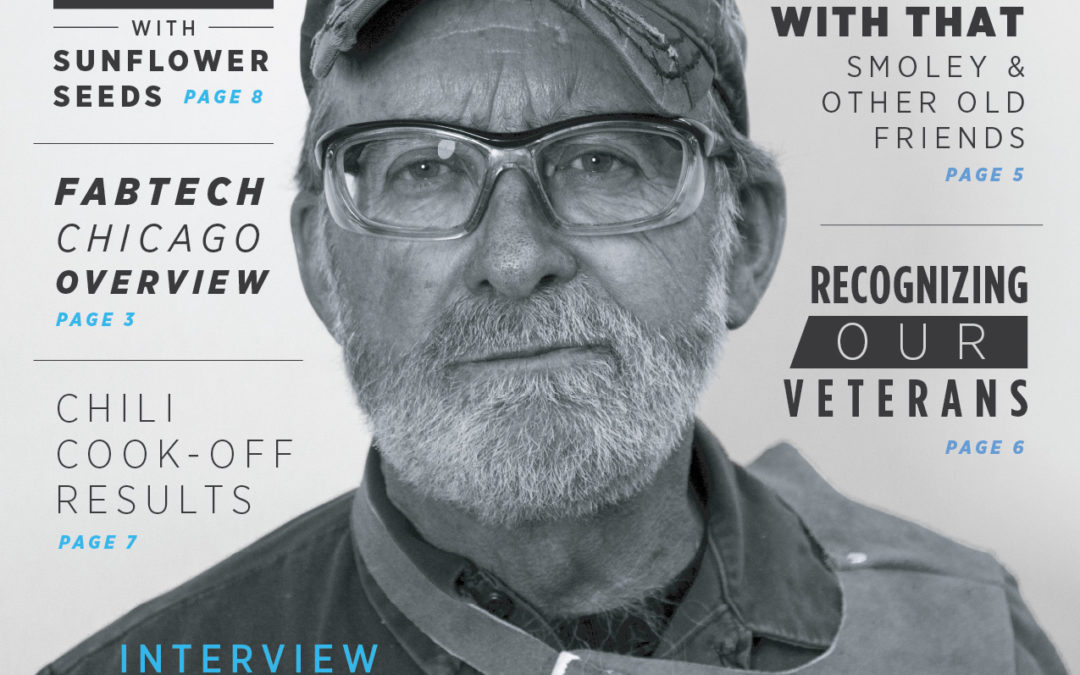
Troubleshooting with Sunflower Seeds
In the aftermarket department, we often get calls from someone who has had a problem. We’ve heard some interesting ones. In fact, the “our filters burned up” is pretty routine, coming from companies without good fire protection systems. But even the best safety systems can fail, and although you may be shocked to hear it, human error often plays a part.
We very rarely get calls about a problem with a spark trap. After all, this is a very mechanically simple device. It doesn’t have any parts to break down. All it does is create turbulence in the air flow to extinguish sparks.
When we sell someone a spark trap, we do always talk to them about the type of dust they’re dealing with. Spark traps aren’t good for large or sticky particles, because in that situation they’re not spark traps; they’re fire hazards. Large particles can fall out of the airflow and accumulate.
The company in this example, fortunately, had exactly the right situation for a spark trap. They needed it for the very fine metal fumes coming from their plasma table. These particles are much too small to accumulate in the spark trap, so everyone had every reason to expect it would work properly.
On a downdraft table, dust and fumes from cutting are pulled downward and into the dust collection system. Fine dust from metal cutting should easily travel through the spark trap and cause no problems.
This did not, however, explain why this spark trap burst into flames. What did explain this, after some investigation, was that sunflower seed shells do not travel easily through the spark trap.
Apparently, folks had been eating sunflower seeds and spitting the shells into the slats of the plasma table for easy disposal. Sunflower seed shells are exactly the type of material we warn against using a spark trap for: they are bulky and, having been chewed on, probably also rather sticky.
The sunflower seeds predictably accumulated in the spark trap, and when an actual spark made its way in, it found a generous supply of fuel waiting for it.
No one was injured in this incident, unless the sunflower shell spitter received capital punishment. But it does illustrate how the human factor can be a problem not just for dust control and air quality, but for all safety measures.
Do you have a sign next to your plasma cutting table warning people not to spit or toss combustible snack foods into it? I’m pretty sure we don’t have one. Besides, every gasoline pump has a warning on it that gasoline and fire are bad together, and that didn’t stop the kid at the pump next to mine from lighting up a cigarette while filling his tank this morning.
Dust and fume collection is one part of the broader industrial safety picture, but the human error factor can never be discounted. Small mistakes can have catastrophic consequences. Fatal accidents have been caused by things as simple as poking at the insulation around a pipe with a pole to see where it was leaking, pressurizing a tank and forgetting to open the emergency relief valve, or leaving material in a mixer overnight and trying to start it again in the morning.
Lessons to be learned from this incident: do not spit sunflower seed shells into your downdraft table. In fact, don’t throw anything in your downdraft table. Do not allow flammable materials to end up where they don’t belong (you’d be amazed at the damage a flaming pastry can do in a dust collector, but that’s another story). Don’t eat yellow snow. And stay safe: combustible dust is an often unrecognized hazard, but a dust explosion can kill.
Read more